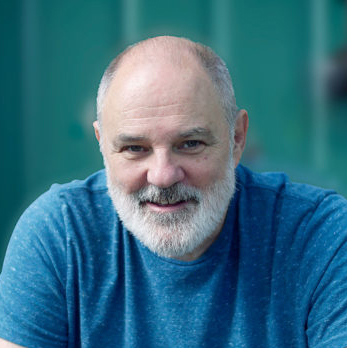Writing about yourself is often difficult for reporters and editors whose work focuses on others. But writing about yourself, honestly, even painfully, can make you a better reporter and editor: more empathetic, more skilled, better able to spot the universal truth in the individual story. Unlike the column, which usually delivers judgment on others, or the feature which focuses on someone other than the writer, or the op-ed essay which explores an issue or situation, the personal essay is not detached. It trains its sights on the writer’s own life and the writer’s emotional, psychological and intellectual reactions to the most intimate experiences. As Phillip Lopate says in his introduction to his anthology The Art of the Personal Essay (Anchor Books DoubleDay, 1994): “The personal essayist looks back at the choices that were made, the roads not taken, the limiting familial and historic circumstances, and what might be called the catastrophe of personality.”
At a time when newspapers are increasingly fearful about losing their audience, personal writing, as most columnists know, generates enormous reader response. Donna Britt’s columns about the emotional landscape of modern life for The Washington Post, sometimes generate 70 letters a week. Mark Patinkin, a columnist for the Providence Journal-Bulletin, spent a month in Africa writing about famine and two months writing about religious violence in Belfast, India, and Beirut. “But a single column I did on how my parents met got more response than either of those two global projects.”
For more than four years, writing a personal essay has been an integral part of seminars for professional and student reporters and editors and broadcast journalists at Poynter. Participants are asked to write a to write a personal essay as well as coach another writer through the experience.
The result has been a small but growing collection of powerful essays and an enthusiastic response from editors and writers who confess that the prospect of exposing themselves on the page terrified them at first. By week’s end, they are convinced of the value of writing “eye to I.” Tina Ezell-Hull, a copy editor at The Post and Courier in Charleston, S.C., expressed a typical reaction:
“I thought, ‘Write a personal essay? Are they nuts. I don’t know these people.’ And then, ‘They want us to read OUT LOUD to the ENTIRE class. Are they kidding? But by the end of the week, we’d all been up together at night getting this done and we all were a little punchy from lack of sleep, and I think most of us forgot to be scared. After all, we did something that’s NOT easy. I guess what doesn’t kill us makes us stronger.”
In her case, the experience also produced a poignant tribute to her “90-something great-grandmother.” Ezell-Hull begins “Memories of Mama,” published on Mother’s Day, with a riveting blend of detail and emotion:
In my mind, I’m still in my tiny bedroom at 230 Miller St. Summer never ended. I never grew up. I never had to say good-bye.
The best friend I ever had is still there, too. Patent leather purse clutched to her side, three-strand pearl choker at her neck, she’s clicking briskly up the sidewalk, switching her hips just a tad.
Mama’s home. And I’m happy again.






